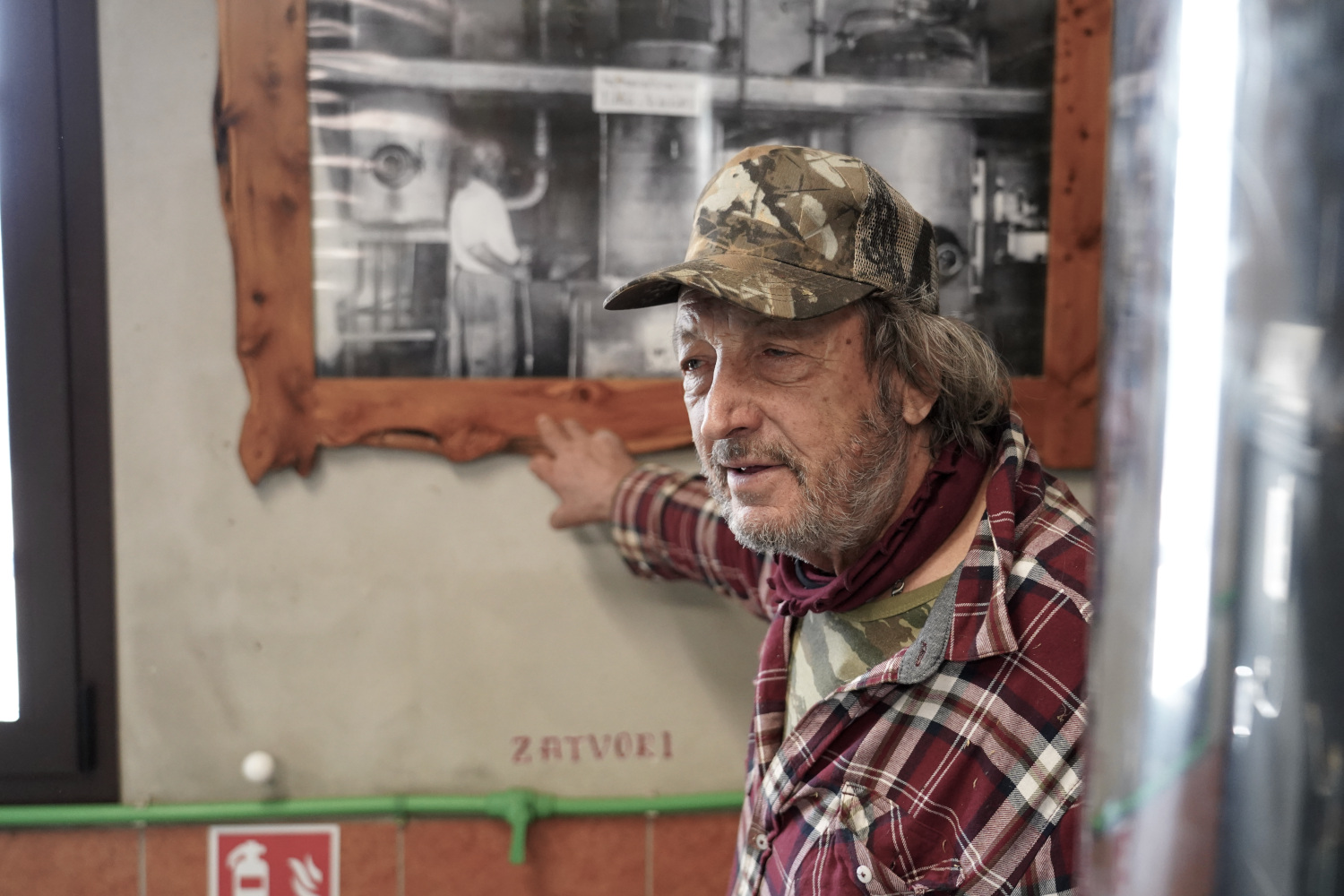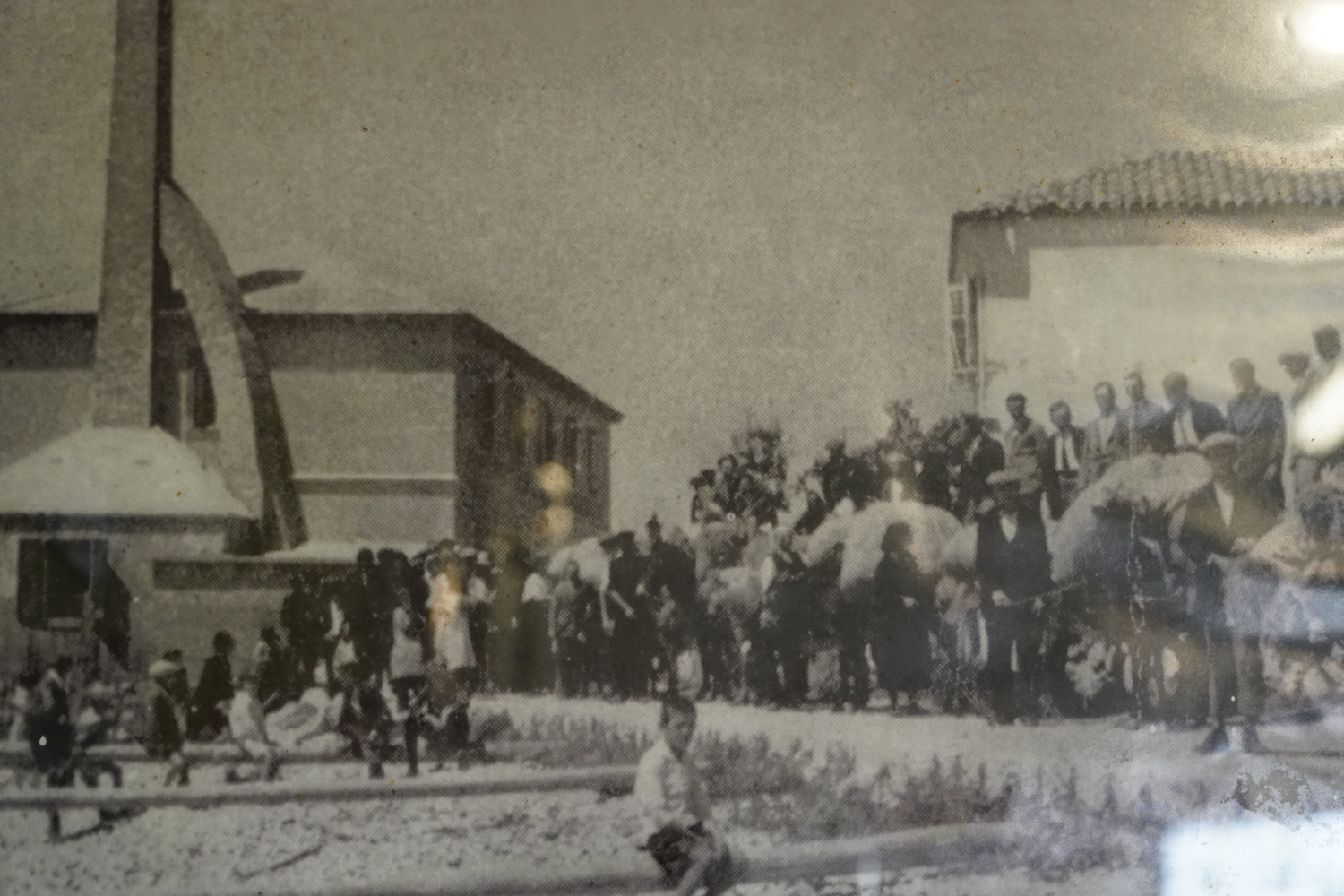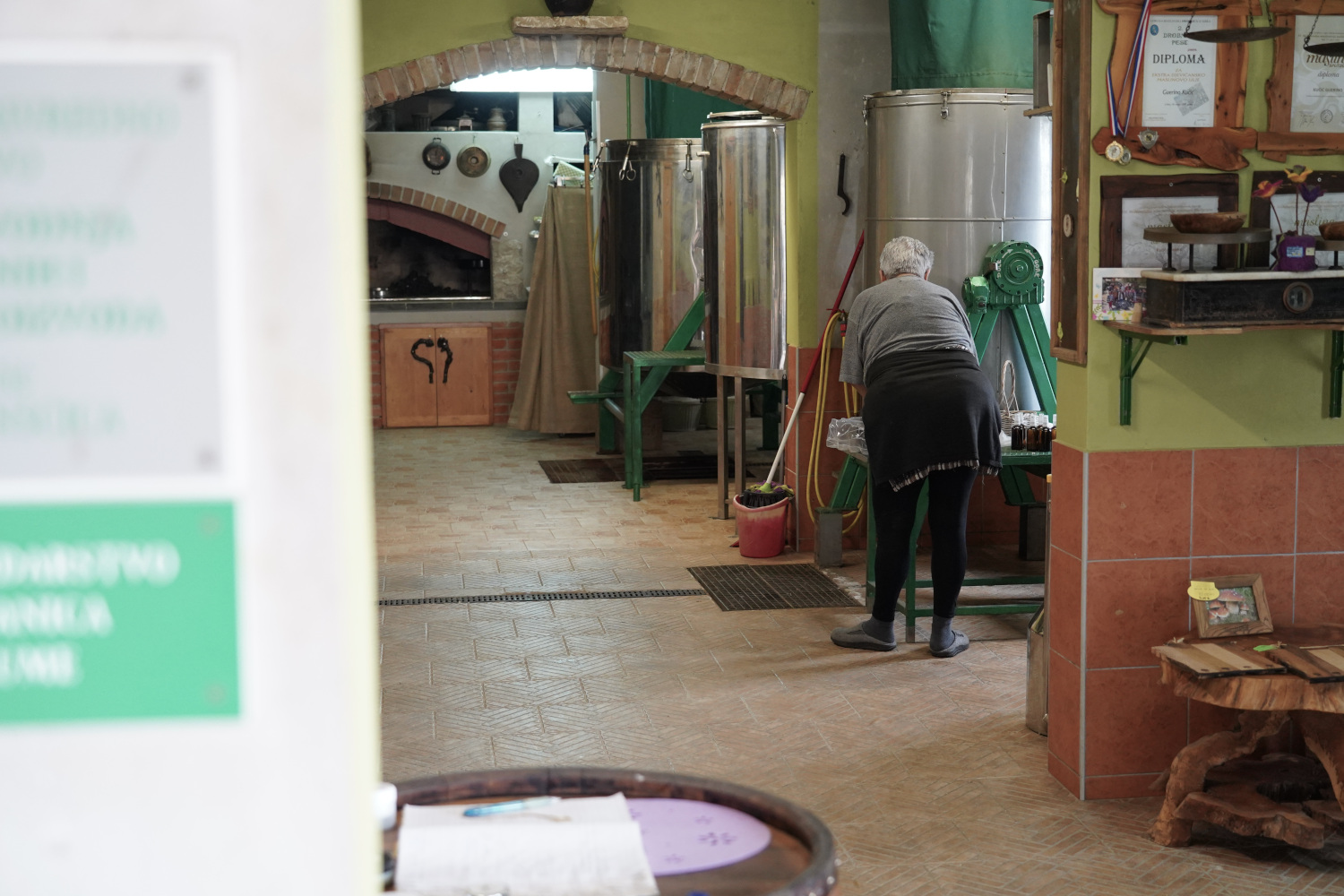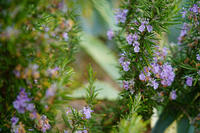
Guerino Kučić in the essential oil distillery in San Martino in Valle in Cres – photo by Davide Sighele
In San Martino in Valle, on the island of Cres, the distillation of medicinal herbs boasts a centuries-old tradition. Today, it is kept alive by Irena and her husband Guerino
In this late winter San Martino in Valle, in Cres, looks like a painting: the historic houses spread out with their orchards and gardens along the sea, motionless. Only the ripple of a regular wave motion breaks this stillness. A veiled sky with clouds makes the atmosphere more muffled.
The contrast with the liveliness of the summer period is strong, even if San Martino is one of those places in the Croatian islands that have not yet been cannibalised by tourism, even though autumn and winter are almost an interlude between tourist seasons.
On the other hand, no one is idle a few hundred metres from the centre of the village, rising slightly in altitude to straddle the promontory that divides the village from the historic Slatina campsite. There Guerino Kučić and his wife Irena have their farm. They are – like the rest of the year – in full swing. Guerino arranges his equipment while his wife is tidying up the patio. The next day, in fact, a group will arrive from Trieste, to visit the distillery.
Guerino and Irena are essential oil distillers. This, together with the production of olive oil, is their main business. We sit outside, under a portico, at a long solid wood table.
Guerino has brought a book. His strong, calloused hands delicately leaf through the pages in search of a specific paragraph. “It's on page 179”, his wife tells him”. “Ah you know it by heart”, he teases her. The book is an American publication from 1949 which collects the literature on medicinal herbs existing at the time. And it also mentions San Martino in Valle. “Americans have dollars. They then imported sage from here, then looked for a land similar to that of Cres but in America, to be able to plant it. To not have to import it. And here it says that they tried but failed”, chuckles Guerino.
This place of few souls, in the past like today, reached the pages of a publication in the United States thanks to the entrepreneurial spirit of Guerino's fellow villager Andrija Linardić, also from Vidovici, a small village in the immediate hinterland of San Martino. In 1903, the latter founded together with his son an essential oil distillery, the first industrial production on the island of Cres. Sage grew wild and abundant on the island, and Andrija Linardić learned that a modern machine for the steam distillation of essential oils had been installed on the nearby island of Hvar. After three years of failure they decided to present their products in London, during an exhibition dedicated to Dalmatia. Hence came the first order from the German company Aroma-Werk Carl-Heine & Co. Then exports expanded to the main chemical and pharmaceutical companies in Germany, the United States, and Japan.
“At that time it was easy for no one, much less for the Linardić family – says Guerino – Andrija Linardić however saw the potential that existed on the island. Then his son continued and the tradition started. At that time only wild plants were harvested. They started with sage, then moved on to helichrysum and other plants. This is how it worked until 1945, then those damn communists arrived and as they destroyed everything else they destroyed the Linardićs too. They confiscated the distillery and kept it going for another ten years. When I arrived here in San Martino to attend primary school, from the village above where I lived, the distillery was still in operation. It smelled all around here. But then they didn't maintain the quality of the product and in '56 they shut down".
Guerino feels that he is walking in the footsteps of the Linardić family. But not always. As a young man, like many here, he spent some time away from the island, he worked on ships, on oil drilling platforms in the North Sea. He then returned home. “I started dealing with medicinal plants at the end of the 80s. Cres is known to be a place in the Mediterranean where a high variety of plants, both medicinal and other, grow. Today we produce excellent quality worldwide, but not so much because of my work as for the richness of our island”.
Irena and Guerino also produce natural cosmetics, creams, and soaps. Most of their products are sold directly to tourists who pass by the company. On the walls of the warehouse which houses the large steel kegs of the distillers – about two metres high and which are loaded thanks to a trap door in the ceiling above – a post-war poster invites the citizens of the island of Cres to collect herbs and deliver them to San Martino: "As in past years, the undersigned will be the buyer of medicinal sage leaves", we read.
“It is now difficult to find manpower – underlines Guerino – for this reason we have rationalised the entire harvesting process, in order to be able to use the machines. I am the only one who does this in Croatia. For example, I have a plot of land sown with sage, I uprooted the trees that were in the way, I levelled with the excavator, the sage was initially crushed, but then it grew back from the remaining seeds. And now my wife and I can do the harvesting by ourselves”.
Unfortunately, Guerino's activity is not widespread on the island. “I would like to be able to share the experience, I produce too little for the demand that there could be at an international level. If there were at least two or three other families we could respond to a market of that kind. Institutions don't support young people and without support it's difficult to start something new. And then they leave".
Despite this note of sadness, Guerino continues to make plans. These days he is working with some huge drills, bought in Sweden second hand. "I'm digging wells, to intercept the aquifers", he says. "In fact, I'm looking for water – and he laughs with the vitality of someone who enjoys his work – the island has always lacked it, but down here there is plenty and it is perfect for agriculture because it is rich in minerals”.
We leave Guerino and Irena, a last look at the farmyard, with a horse, some chickens and some sheep. Symbol of genuine food still produced at home. In the background, the sea. A landscape that is unfortunately unusual, to our eyes accustomed to mono-culture tourism along the coast.
Nicole Corritore contributed to this report
La galleria fotografica
A photo story devoted to San Martino in Valle and to the company of Guerino and Irena




















 To Top
To Top